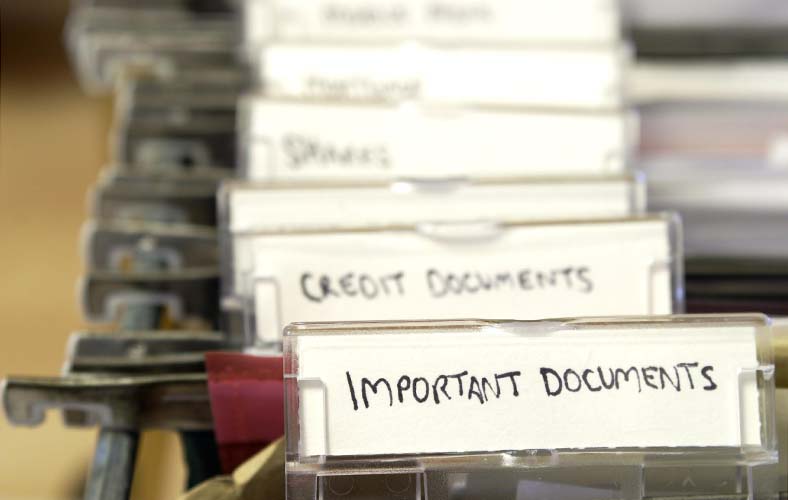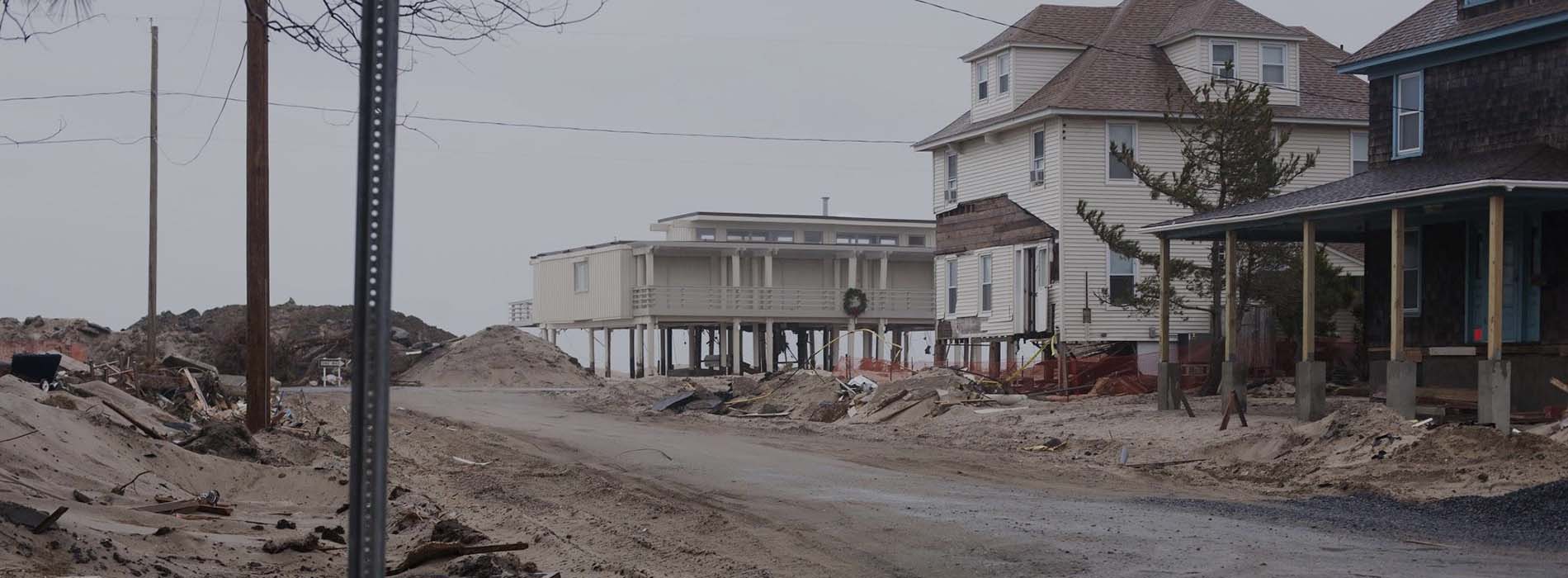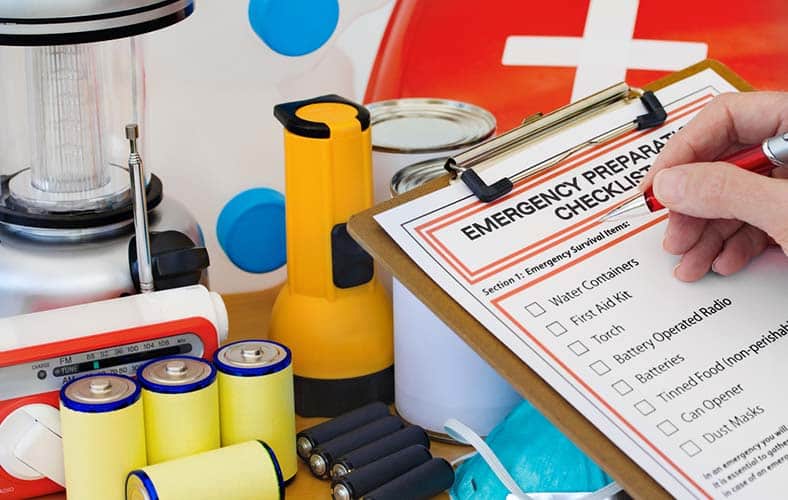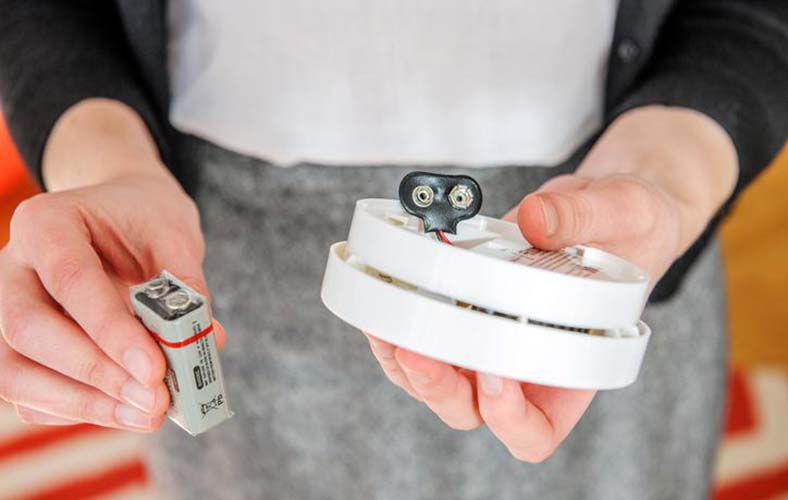Growing up in Florida, you can become a bit numb to storm warnings. I had the same thing happen when I moved to Minneapolis after college and heard the tornado sirens being tested every Wednesday afternoon. My life had never been impacted by a disaster, so I just tuned the warnings out. But my perspective changed considerably when I got a job working for the American Red Cross.
Every day I would come into work and see the long lists of people who had lost their homes to fires, just the night before. Fires were the most common type of disaster we would see, but in the course of a month, we might have helped people across the country recover from floods, hurricanes or tornadoes. You can’t predict where and when disaster will strike, which is why it’s crucial to be proactive and get prepared. These simple steps can help you survive a disaster. If you’re lucky enough that the day never comes, these precautions will at least give you peace of mind.

Make copies of all of your important papers and store them digitally.
I traveled to New Orleans after Hurricane Katrina. The families I worked with told me how they couldn’t get their kids registered for school because not only had they personally lost all of their records, but the schools had, too. When an entire community is impacted by a disaster, you can’t rely on anyone having paper records. Scan copies of your medical records, insurance policies, passports, car titles and anything else that you need to prove ownership or access benefits. Keep copies of these documents in secure, cloud-based storage so that you’ll always be able to access them.
Have an escape plan that the entire family has practiced.
If a fire or flood strikes your home, your number one priority should be to get to safety immediately. In scary situations, young kids have the impulse to hide. But this puts them—and anyone who is searching for them in a panic—at a grave risk. Talk about a plan as a family and practice it. For instance, if there is a fire, maybe your family will plan to meet at the mailbox at the end of the street. Or maybe one person is responsible for grabbing the dog. The American Red Cross has template emergency plans that you can work through with your family, and they even list the types of disasters that you are most likely to face based on where you live.
Be prepared to hunker down.
If a storm hits and you’re unable to evacuate to a safer area, you’ll need to be prepared to survive in your home without running water or electricity. Gather enough supplies to last you for three to five days, because it may take that long for emergency aid workers to reach you. It may also take that long for utilities to be restored, unless you have access to solar battery packs, which work just as effectively as solar panels and are ideal for emergency preparedness. The Federal Emergency Management Agency recommends that you have the following: one gallon of water per person (for drinking and sanitation) for at least three days; at least a three-day supply of non-perishable food; a first aid kit; flashlights and extra batteries; and prescription medications and eye glasses. A full list of recommended supplies can be found here.
READ MORE: Shelter from the Storm
Invest in devices like smoke and carbon monoxide detectors that can save your life.
Did you know that smoke detectors expire after ten years, even if you have a new battery in them? They have expiration dates on the back, so make sure to check them! Three out of every five home fire deaths occur in homes with no smoke detector or a non-working smoke alarm. While you’re at it, test your battery once a month. You should have smoke alarms in every room in your house. If you sleep with bedroom doors closed—which is recommended, since heavy smoke can lull you into deeper sleep before you have the opportunity to hear a smoke alarm—make sure there are alarms in each bedroom, too. It only takes five minutes for a fire to consume your entire home, so give yourself every opportunity you can to get out alive. For small fires (which often occur in the kitchen), make sure you have a fire extinguisher in the house and know how to work it.
Remember how I had felt immune to disaster? Well, just last year, I lost my home in a plumbing-related, yet catastrophic flood. I was displaced, and it was a giant headache. The good news is that it could have been much worse, if I hadn’t taken this advice and planned ahead. Because of my disaster plan, my dogs were unharmed, I had digital copies of all of my important papers and I managed to keep almost all of my family photographs. Friends and family kept waiting for me to have an emotional breakdown, but I’d seen worse, and I knew that I had been lucky. Facing a disaster will undoubtedly be stressful and traumatic, but with the proper preparation, it doesn’t have to turn into a tragedy. Prepare for the worst, so that if that day comes, you’ll be prepared to rebuild.
READ MORE: How to Survive a Tornado
 Danielle Hegedus is an Atlanta-based writer. She is a regular contributor to Modernize, as well as a variety of lifestyle and home design websites. Danielle recently finished her first cookbook, a collaboration with Chef Kamal Grant of Atlanta’s beloved Sublime Doughnuts.
Danielle Hegedus is an Atlanta-based writer. She is a regular contributor to Modernize, as well as a variety of lifestyle and home design websites. Danielle recently finished her first cookbook, a collaboration with Chef Kamal Grant of Atlanta’s beloved Sublime Doughnuts.



